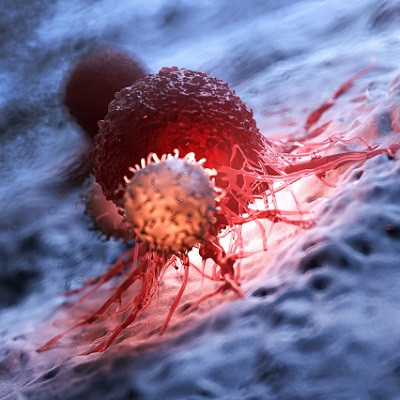
2020-08-05
Visited : 2436
Although hospitals use surgery, chemotherapy, and radiation therapy to treat cancer, there are still risks of side effects. A research team at the Seoul National University Hospital (SNUH) has developed a new type of nanoparticle to make hyperthermia treatment for cancer more effective.
Recently, nanoparticle-using hyperthermia treatment for cancer has attracted attention as a new method to overcome limitations of conventional treatments. Hyperthermia is a treatment that applies heat to cancer cells, and the efficacy of the therapy depends on how much heat can be delivered to the tumor located deep in the body.
However, nanoparticles currently used in the medical field have limitations. Gold nanoparticles have weak mechanical properties and are expensive, while iron nanoparticles get easily oxidized and are difficult to use repeatedly despite having strong physical properties and great magnetism.
There is a high unmet medical need to develop new nanoparticles that are suitable for the human body and have excellent treatment effects and durability.
To resolve this issue, the research team led by Professor Paek Sun-ha at the hospital, developed a new nanoparticle that has an iron and iron oxide core-shell structure that selectively oxidizes the surface of an iron nanoparticle. Professor Park Won-chul at Seoul National University Graduate School of Convergence Science and Technology also participated in the study.
“The new nanoparticle was found to be superior in terms of treatment effect and cost compared to conventional nanoparticles,” the team said in a paper. “It will also be effective against refractory cancers, including malignant brain tumors, which have been difficult to treat and overcomes the disadvantages of iron nanoparticles, which were weak to air and water.”
The research team expected that the newly developed nanoparticle will perform well in the hyperthermia cancer treatment.
Read the original article on Korea Biomedical Review (KBR).